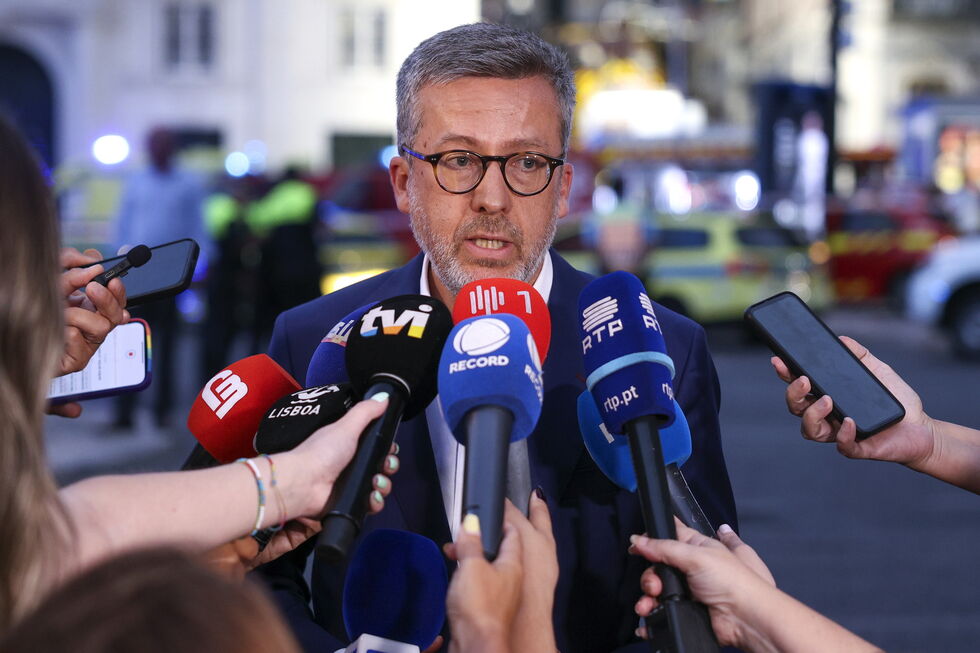<![CDATA[ Demissão impediria Moedas de ir a eleições em outubro ]]>
![<![CDATA[ Demissão impediria Moedas de ir a eleições em outubro ]]>](/_next/image?url=https%3A%2F%2Fcdn.sabado.pt%2Fimages%2F2025-09%2Fimg_1200x676uu2025-09-11-12-59-26-745934.jpg&w=1920&q=100)
Carlos Moedas, Mayor of Lisbon, would have to leave the lists of the Por Ti, Lisboa coalition (which brings together PSD, CDS and IL) if he resigned from his position following the Elevador da Glória accident. Despite there are voices in the opposition (such as André Ventura, leader of Chega, or Pedro Nuno Santos, former leader of the PS) who believe that Carlos Moedas should resign, the mayor has refused to take that step.

Carlos Moedas has refused to resign MIGUEL A. LOPES/LUSA_EPA
If he did, the immediate consequences would be his impediment for these local elections of October 12th. According to Law No. 46/2005 , which sets limits on the terms of office of mayors, "in the event of resignation from office, (...) they may not run in the immediate elections or in those held in the four-year period immediately following their resignation." In other words, Carlos Moedas would only be able to run again in the 2029 local elections.
This law, consisting of just three articles, approved during the government of José Sócrates and promulgated by Jorge Sampaio, then President of the Republic, arose at the time of two cases related to the government of Durão Barroso and two PSD mayors.
One such example was Pedro Santana Lopes, who in 2004 and 2005 moved between the Lisbon City Council and the government. In the summer of 2004, he left the municipality, where he was mayor, to become prime minister, appointed by Jorge Sampaio when Durão Barroso resigned to become president of the European Commission.
Pedro Santana Lopes suspended his mandate in the chamber, but a few months later Jorge Sampaio "dismissed" him, triggering early legislative elections, in which Santana Lopes ran in February 2005. After losing, he returned to the chamber (in the October elections, the PSD candidate would be Carmona Rodrigues).
Although Santana Lopes's case was a suspension, not a dismissal, it made headlines at the time. For example, Lusa ( cited here ) cited the position of constitutionalists such as Jorge Miranda: "Since he assumed the position of prime minister, which is incompatible with any other position, the suspension of his mandate in the Chamber is immediate, but as soon as he ceases those functions, he automatically returns to being president (of the municipality)."
There had been a previous case of Isaltino Morais, who resigned from the Oeiras city council in 2002 to become a minister under Durão Barroso. Three years later, and already out of government (as seen above, the PSD lost the February 2005 legislative elections), Isaltino Morais ran again for Oeiras and won. He couldn't do so today—Law No. 46/2005 had already been enacted, but it wouldn't come into effect until January 2006.
From this date onwards, several mayors resigned from their mandates, but were unable to run again (at least for the following four years).
Carlos Moedas has refused to resign from his position to this day, claiming that he had no knowledge of the security deficiencies of the Elevador da Glória and that, as such, he has no political responsibilities to assume, contrary to, for example, what he defended regarding Fernando Medina in 2021 - Moedas called for the socialist's resignation, claiming that he had direct responsibilities in Russiagate (which was never proven).
Related Articles



sabado

%2Fhttps%3A%2F%2Fi.s3.glbimg.com%2Fv1%2FAUTH_59edd422c0c84a879bd37670ae4f538a%2Finternal_photos%2Fbs%2F2025%2Fe%2F5%2FunOZo0TRCARHDM4g1YFA%2Fap25254508870773.jpg&w=3840&q=100)



